Your gums may be telling you more about your health than you realize.
A little pink in the sink usually doesn’t cause concern, but it should. It’s worth taking a peak in your mouth – it can offer an inside look into the health of your immune and cardiovascular system. If your sink is pink after you brush, your gums are bleeding. This happens when your gums are inflamed. That is a condition called gingivitis, and it is the same inflammatory disease that leads to periodontitis. Periodontitis is a chronic inflammatory disease that can cause tooth loss. Yikes! Plus, those with gum disease have a two to three times greater risk of heart attack or stroke. It’s time to give your mouth some tender loving care!
What is good for gum health?
Gums can become inflamed because of plaque buildup. Plaque is a thin, hardly visible film that is made up mostly of bacteria. It is usually found right along your gum line and will feel fuzzy to your tongue. (Did anyone else just run their tongue along their teeth?)
Healthy gums are pink in colour and fit snuggly around your teeth. If plaque builds up your gums swell. A gap then forms between your teeth and gums. Bacteria can settle into the pocket that’s formed beside the base of the tooth, and start to cause the root of the tooth to decay. If the gaps become large enough that the gums recede from the teeth, the teeth can become lose, and could fall out. This progression from gingivitis to periodontitis is really common – it is the sixth most prevalent disease worldwide. But, it is preventable. Try these ways to improve your oral health naturally!
Signs and symptoms of gingivitis
- Bleeding gums
- Redden gums
- Swollen gums
- Gums bleed during tooth brushing
- Frequently does not cause pain
What’s the best way to remove plaque?
 Before you run to the bathroom to brush away the plaque on your teeth, there are two things you need to know about oral health. Firstly, the biggest factors in preventing the progression of gingivitis are proper plaque removal and oral care.
Before you run to the bathroom to brush away the plaque on your teeth, there are two things you need to know about oral health. Firstly, the biggest factors in preventing the progression of gingivitis are proper plaque removal and oral care.
According to research studies, manual tooth brushing reduces plaque by 42%, while re-chargeable power brushes may remove plaque as much as 71%. As for getting plaque that is hiding between your teeth, research suggests the best choice (in order of effectiveness) are inter-dental brushes, followed by flossing and then wooden sticks. Yes, puppy dogs could be onto something when they chew sticks. Miswak, a herbal chewing stick, has been used for hundreds of years to clean teeth. It is a twig made from a tree known as the arak (Salvadora persica). Studies show it is an effective way to clean teeth; although caution with how you use it as there are reports of gum recession and tooth wear.
How do microbiomes affect the body?
In your battle against plaque, it is important to consider your mouth’s microbiome. The microbiome is what scientists call the bacteria that live in your mouth, gut and urinary tract. Sometimes your microbiome is host to more bad microbes than good. This is referred to as dysbiosis.
Dysbiosis in your mouth triggers inflammation and your gums become red and swollen. Some studies suggest keeping your mouth’s microbiome healthy is a great way to improve your oral health naturally. This can be done with the help of probiotics. Probiotics can improve dysbiosis in the mouth and produce significant improvements in oral disease. Some strains of L. rhamnosus, L. casei, L. brevis and L. reuteri, as well as some species of Bifidobacteria have shown potential to prevent dental caries and gingivitis.
Still thinking about running off to brush your teeth? Hold, on!
Here is the second thing you need to know. Research suggests mental stress, lifestyle and nutrition play a role in oral health. Let’s talk stress. Adults living in Toronto were asked about their stress levels over three years (2009 to 2012). Those adults with greater perceived stress complained of poorer oral health. More research is needed, but self-care and stress reduction may be ways to improve your oral health naturally.
Meanwhile, find healthier alternatives to high sugar treats. Eating a diet that is high in sugar causes teeth to deteriorate. Structures in your mouth can also be affected by deficiencies in folate, B vitamins, calcium, fluoride, protein, vitamins A, C and D3. Whole foods such as fresh fruits, vegetables, beans, nuts and seeds are sugar-free options that are great sources of these healthy nutrients. Improve your oral care naturally by lowering your stress and eating healthy.
How do I know if I have periodontitis?
- Red or bleeding gums
- Sensitive teeth
- Pain
- Bad breath
How can I take care of my teeth and gums naturally?
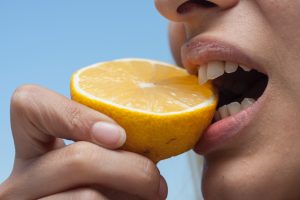 Could pomegranate or green tea be helpful in improving gum inflammation in addition to your brushing and flossing habits? Yes, but perhaps not in the way you’re thinking.
Could pomegranate or green tea be helpful in improving gum inflammation in addition to your brushing and flossing habits? Yes, but perhaps not in the way you’re thinking.
The studies used mouthwashes, not a cup of green tea or a glass of pomegranate juice. In a 2018 review, green tea mouthwash was noted as being a good natural alternative to chlorhexidine (antiseptic) mouthwashes to sustain oral hygiene. In a clinical trial, a pomegranate mouthwash was successful at removing plaque on diabetic’s with gingivitis. Neem mouthwash, according to a study of 40 adults (aged 18 to 35), may be another effective option to reducing plaque buildup and improving your oral health naturally.
Dental Health
Like our bones, our teeth need vitamin K2 to support mineralization and prevent tooth decay. Odontoblasts, which line the dentin layer just beneath the enamel of teeth, produce osteocalcin – a non-collagenous protein hormone. Osteocalcin needs to be activated by vitamin K2 before it can incorporate calcium into the dentin matrix.
Incidentally, some of the highest amounts of vitamin K2 in the body are found in our saliva. It has been observed that K2 has antimicrobial effects and reduces the number of cavity-causing bacteria, which helps to prevent tooth decay.
Healthy pink gums are important to your mouth and overall health. Improve your oral care naturally: de-stress, brush, floss, chew on healthy foods, and support your microbiome.
References:
Use of probiotics and oral health. Curr Oral Health Rep 2017; 4(4):309-318.
Primary prevention of periodontitis: managing gingivitis. J Clin Periodontology 2015 Jan;42(S16).
Gingivitis and periodontitis: Overview. Informed Health Health. 2011 Oct 5 (Updated 2018).
Current stress and poor oral health. BMC Oral Health 2016 Sep 2;16(1):88.
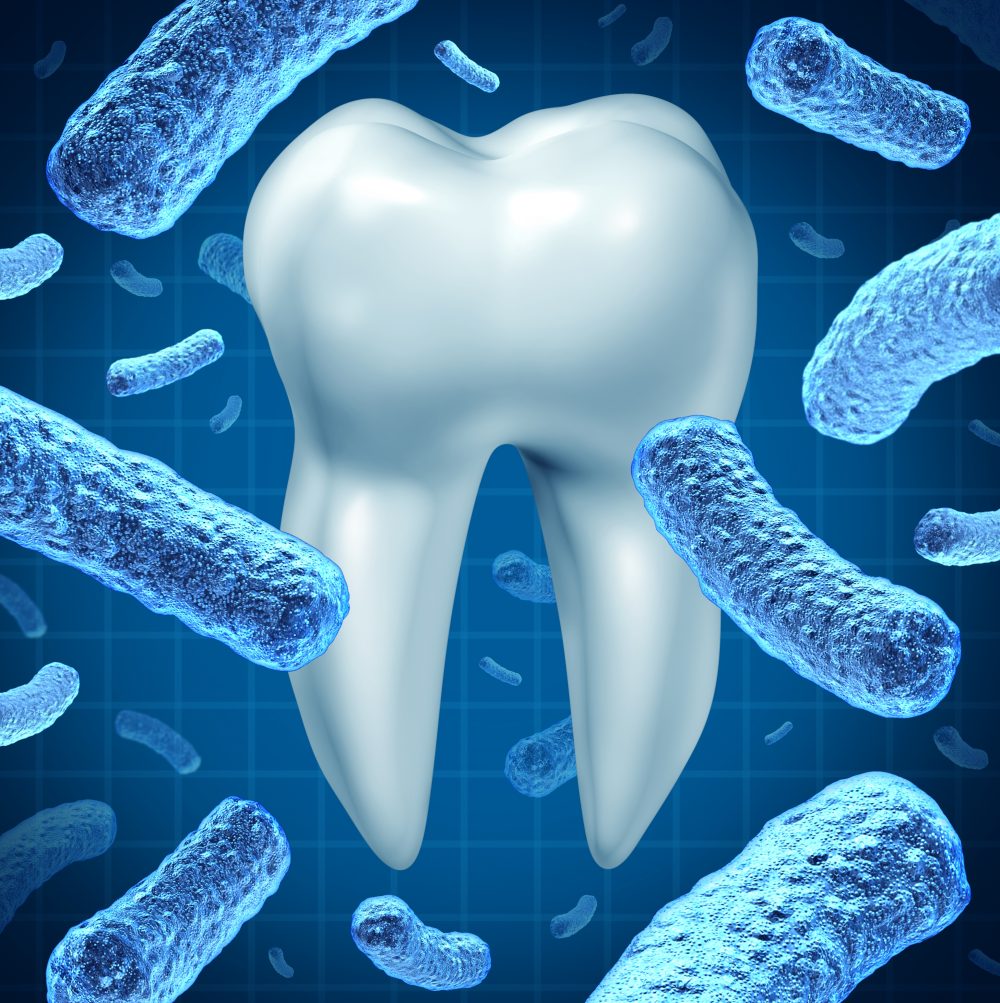
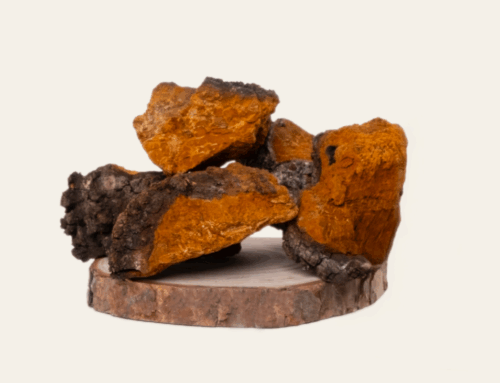

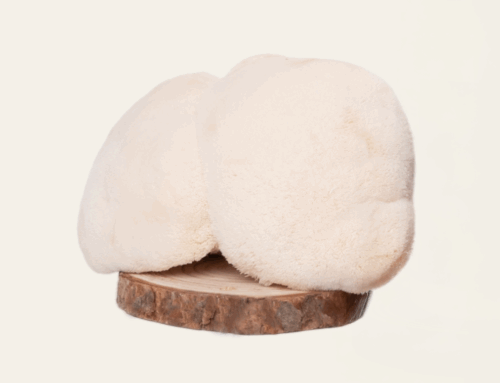
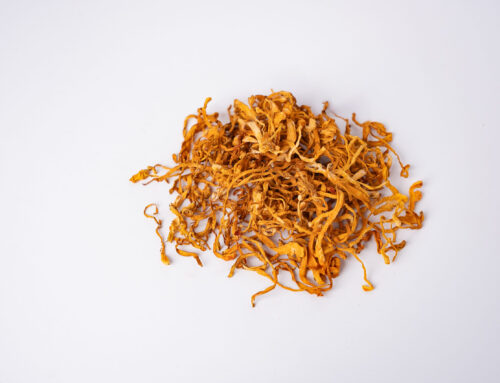
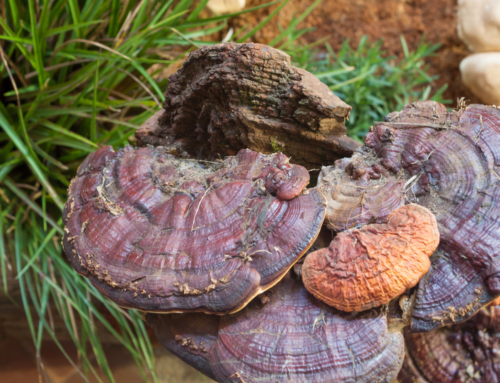

Very informative , thank you very much.
We all dream of healthy teeth But we don’t always get what we want. So for that, we have to do these things to make them strong. And it’s important for all over body health to maintain dental health. Nice that you shared this article with all the people
Thank you! Glad you enjoyed this blog post of ours 🙂
Maintaining good dental health is very important for all over bodies health. We become what er eat, not really, but yeh it impacts our health as well as teeth. So maintain good oral health is important
Excellent writing!
You are completely right, Keeping your tongue clean by brushing it well during your oral cleanliness routine is an extraordinary method to decrease microscopic organisms. Furthermore, you may see fresher breath and a general cleaner feeling.
Hello,
Oral health is very important every person and you have wonderful tips for oral health naturally, thanks for sharing this creative blog.
Hello,
There is a lot of useful information on its blog, and you naturally share amazing information about oral health care with us, thank you.